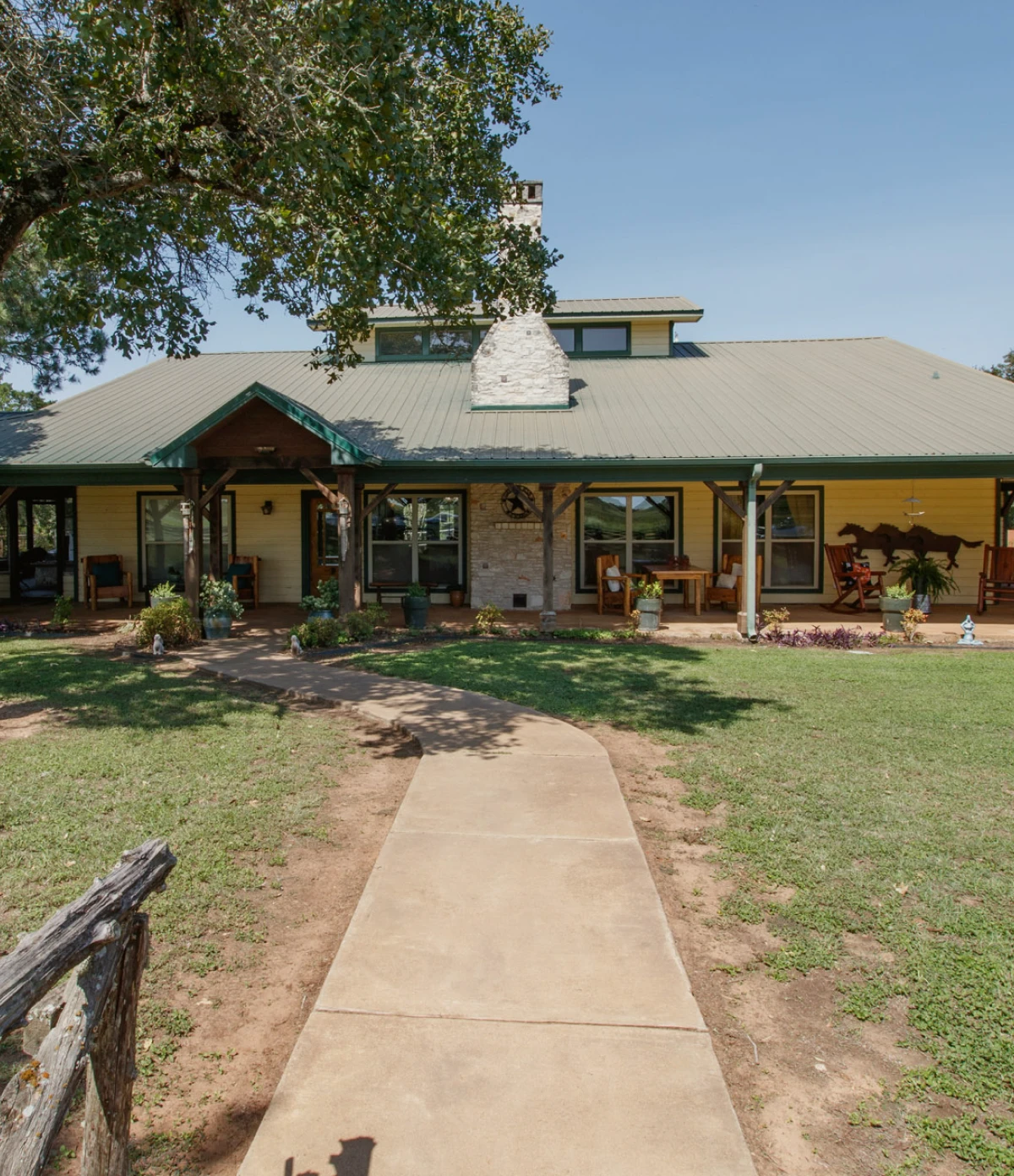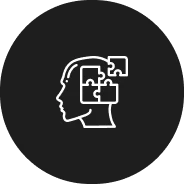We work with insurances. Verify yours now
Relapse Prevention & Ongoing Support for Long-Term Recovery
Aftercare treatment, also known as relapse prevention and continuing care, refers to the ongoing support and services provided to people after they have completed a primary phase of treatment for drug abuse and dual diagnosis issues, such as inpatient care or intensive outpatient (IOP).[1] Aftercare helps you transition back into your daily life while maintaining your progress and is designed to support long-term recovery.
Key components of aftercare for drug rehabilitation can include:[2]
Many aftercare programs include regular therapy sessions to help individuals address underlying issues, learn coping skills, and manage triggers that could lead to relapse. Therapy may be individual, group, or family-based, depending on the needs of the individual.
Participation in support groups such as Alcoholics Anonymous (AA) or similar groups provides ongoing peer support, accountability, and a sense of community. These groups often follow a 12-step or similar structured program that encourages personal growth and sobriety.
Engaging family members in aftercare can improve outcomes by fostering a supportive environment and addressing family dynamics that may contribute to stress or triggers.
Aftercare emphasizes the importance of adopting healthy lifestyle habits that support recovery, such as regular exercise, a nutritious diet, adequate sleep, and stress management techniques.[3]
Programs may offer workshops or classes on topics like relapse prevention strategies, communication skills, anger management, and vocational training to help individuals rebuild their lives.[4]
Aftercare providers often conduct regular check-ins to assess progress, address any emerging issues, and reinforce positive behaviors. This monitoring helps individuals stay accountable and motivated in their recovery journey.
Plans for handling potential crises or setbacks are an integral part of aftercare. Providers equip individuals with strategies to navigate challenging situations without turning to substances or unhealthy behaviors.

Aftercare programs for addiction works by continuing your connection to the recovery community and providing ongoing care services on an outpatient treatment basis.[5] Aftercare programs provide personalized strategies tailored to each person’s evolving needs, ensuring that interventions are not only relevant but also effective in managing specific triggers and stressors for drug use that may jeopardize recovery. By offering individualized care plans, aftercare providers empower you with practical tools and coping mechanisms that strengthen your resilience over time.
Aftercare drug treatment also provides continuity of care through structured follow-ups and ongoing treatment, as well as engagement with your support system. Regular check-ins with healthcare providers help track progress, identify potential setbacks early, and adjust treatment plans accordingly. This proactive approach not only minimizes the risk of relapse but also promotes accountability and motivation throughout the addiction recovery journey.

Continuing care is widely recognized as an important part of substance use disorder treatment, particularly for those facing greater severity of issues.[6] Extending beyond the initial phases of treatment, continuing care programs provide ongoing support and intervention that are essential for sustaining recovery over the long term. Research consistently underscores the efficacy of continuing care across various age groups and demographics, highlighting its vital role in achieving positive outcomes.
While achieving sobriety is a fundamental goal of addiction treatment, contemporary perspectives emphasize the need for a bigger focus on the psychosocial aspects of recovery.[7] This includes addressing factors such as mental health, social relationships, vocational skills, and overall quality of life. By integrating these elements into treatment frameworks, ongoing care not only supports sobriety but also enhances your ability to navigate and thrive in everyday life.
Recent findings underscore the compelling evidence that continuing care effectively prolongs the beneficial effects of your initial treatment phases as well.[8] By providing structured support services and monitoring, continuing care programs help individuals consolidate their progress, manage potential relapse triggers, and cultivate sustainable recovery behaviors.
This proactive approach not only mitigates the risk of setbacks but also reinforces positive changes in lifestyle and behavior, promoting resilience and long-term wellness.
Click on the links below to learn about the Aftercare care staff at The Last Resort.
We’re excited to share the positive experiences of our other community members, many of whom were where you are today – overwhelmed and uncertain. These are their stories. What will yours be?
The recovery process is truly a lifelong journey – and that’s why The Last Resort empowers all our clients with the very best in evidence-based, holistic care. We’re with you every step of the way.
A supportive program promoting abstinence and personal growth through structured steps. Participants work through 12 specific steps, share experiences, and support each other in recovery, fostering accountability and community.
Detailed information on substance use disorders, their effects on the brain and body, and various recovery strategies. This knowledge empowers individuals to make informed decisions about their health and recovery journey.
A widely-used therapy addressing negative thought patterns and behaviors associated with addiction. It helps individuals identify and change destructive thought processes, develop coping strategies, and modify harmful behaviors.
A comprehensive therapy focusing on emotion regulation, distress tolerance, interpersonal effectiveness, and mindfulness skills. It’s particularly effective for individuals dealing with intense emotions or co-occurring disorders
An approach promoting emotional growth and self-awareness through interactions with horses. Participants learn about themselves by observing and interacting with horses, fostering trust, communication, and emotional regulation.
Active, hands-on approaches to emotional processing and behavior change. Activities may include art, music, role-playing, or outdoor adventures, allowing individuals to address issues through direct experience and reflection.
Collaborative therapy involving family members to enhance communication, resolve conflicts, and build a supportive environment for recovery. It addresses family dynamics affected by or contributing to addiction.
Structured physical exercise programs designed to promote overall health, reduce stress, and support recovery. Regular exercise improves mood and sleep quality and provides a healthy outlet for stress and emotions.
A therapeutic setting where individuals share experiences, challenges, and successes with peers in recovery. It provides validation, diverse perspectives, and opportunities to practice interpersonal skills.
An intensive workshop focused on emotional healing and personal growth. It often involves guided exercises, reflection, and group support to address deep-seated emotional issues and promote self-discovery.
Personalized sessions with a therapist for exploration, goal-setting, and addressing specific issues. It offers a safe space for deep, individualized work on recovery and personal growth.
Practical training in essential skills for daily life and maintaining sobriety. Topics include financial management, job readiness, communication skills, and stress management, aiming to support independent, substance-free living.
A client-centered counseling style helping individuals resolve ambivalence and enhance motivation for change. It explores and strengthens personal motivations for recovery, promoting lasting behavior change.
Therapeutic role-playing and storytelling to gain insight into one’s life, explore emotions, and practice new behaviors in a safe environment.
Goal-directed therapy focusing on strengths and solutions rather than problems. It aims for rapid change by helping individuals envision a preferred future and take concrete steps towards it.
Application of yoga practices and concepts to promote physical, mental, and emotional well-being. It combines postures, breathing exercises, and meditation to reduce stress and increase body awareness.
At The Last Resort, we understand that each man’s path to recovery is unique. There is no one-size-fits-all solution for addressing substance use disorders or co-occurring diagnoses. Our commitment is to deliver personalized care that meets each client where they are.
Upon arrival at our campus, every client undergoes a thorough assessment. This evaluation serves as the cornerstone for determining the most suitable level of care. Our experienced team meticulously reviews the assessment results to develop a customized treatment plan made just for you.

A multidimensional biopsychosocial assessment aligned with ASAM Criteria[9]
Consideration of the client's personal goals and perceived needs
Insights gathered from our multidisciplinary treatment team
Ongoing evaluation of treatment progress and response

When a client achieves the goals set out in their treatment plan or show significant stability in their recovery journey, we facilitate their transition to a less intensive level of care.
This flexible approach ensures that each man receives the appropriate level of support when it’s needed most.

Aftercare is highly recommended for everyone who completes substance abuse treatment, as it provides ongoing support crucial for maintaining sobriety and preventing relapse. While the intensity and duration of aftercare may vary based on individual needs and progress, the structured support helps individuals navigate challenges post-treatment and reinforces healthy coping strategies learned during rehabilitation. It serves as a critical bridge from intensive treatment to independent, sustainable recovery.
Family involvement can play a significant role in aftercare programs. Many programs encourage family members to participate in sessions or workshops designed to enhance communication, rebuild trust, and establish supportive relationships. Involving family members can help create a more stable and supportive environment for the individual in recovery. Family members often learn about addiction, coping strategies, and ways to effectively support their loved one’s ongoing recovery journey.
Aftercare programs typically include strategies and techniques for managing stress and handling triggers that could lead to relapse. These may include stress management techniques such as mindfulness, relaxation exercises, and cognitive-behavioral coping skills. Aftercare providers often work closely with individuals to identify specific triggers and develop personalized strategies to avoid or manage them effectively. By equipping participants with these tools, aftercare programs empower individuals to navigate challenging situations while maintaining sobriety and overall well-being.
[1] American Psychological Association. (n.d.). Apa PsycNet. American Psychological Association. https://psycnet.apa.org/record/2023-09097-004 on July 9, 2024
[2] National Institute on Drug Abuse. (2020, July). Treatment and Recovery. National Institute on Drug Abuse. https://nida.nih.gov/publications/drugs-brains-behavior-science-addiction/treatment-recovery on July 9, 2024
[3]Rippe J. M. (2018). Lifestyle Medicine: The Health Promoting Power of Daily Habits and Practices. American journal of lifestyle medicine, 12(6), 499–512. https://doi.org/10.1177/1559827618785554 on July 9, 2024
[4]A. Smelson, D., Psy. D. (n.d.). MISSION Navigating Transitions Program: Recovery Coach Guidebook. Retrieved from https://www.mass.gov/files/documents/2019/08/01/MISSION%20Navigating%20Transitions%20Program%20Recovery%20Coach%20Guide_Final%206.27.1….pdf on July 15, 2024
[5] Targeting the barriers in the substance use disorder continuum of care with peer recovery support – Milena Stanojlović, Larry Davidson, 2021. (n.d.). https://journals.sagepub.com/doi/full/10.1177/1178221820976988 on July 9, 2024
[6] McKay, J. R. (2009, March). Continuing care research: What we have learned and where we are going. Journal of substance abuse treatment. https://www.ncbi.nlm.nih.gov/pmc/articles/PMC2670779/ on July 9, 2024
[7] McKay, J. R. (2021, January 21). Impact of continuing care on recovery from substance use disorder. Alcohol research : current reviews. https://www.ncbi.nlm.nih.gov/pmc/articles/PMC7813220/ on July 9, 2024
[8] Exploring the meaning of recovery and a sober life after a long … (n.d.-a). https://journals.sagepub.com/doi/full/10.1177/14550725231170454 on July 9, 2024
[9] About the ASAM criteria. Default. (n.d.). https://www.asam.org/asam-criteria/about-the-asam-criteria on July 9, 2024